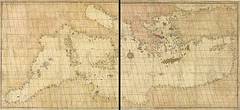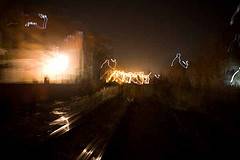Today, the OpenNet Inititative has released a report on the roles Western tech companies have played in enabling repressive Arabic regimes to filter and control the use of the Web by their citizens.

In the report, authors Helmi Noman and Jillian C. York “find that nine countries in the region utilize Western-made tools for the purpose of blocking social and political content, effectively blocking a total of over 20 million Internet users from accessing such websites.”
Key Findings
Among the key findings by the investigation team of Ronald Deibert, John Palfrey, Rafal Rohozinski, and Jonathan Zittrain, are nine Middle Eastern countries with ISPs who use Western tech to muzzle the Internet: Bahrain, UAE, Qatar, Oman, Saudi Arabia, Kuwait, Yemen, Sudan and Tunisia.

They use these services to block sites based on a host of content criteria, including gay, lesbian, bisexual and transgender material; proxies and anonymization; sites skeptical of Islam as well as those with a secular or atheistic focus; and dating services.
Among the products used are U.S. tools including Intel‘s McAfee SmartFilter and Websense, as well as Canadian-made Netsweeper.
The massive blocking lists, the lists of content, specifically sites, that can be blocked by a given software, are maintained by the filtering software company in partnership with their national clients. So the companies themselves are engaging in actions which make blocking of a specific non-profit or tool possible. They are hardly neutral tools, the screwdrivers or wrenches of the Internet. They are purpose-built, dynamic systems.
To co-author Jillian York, the most important discovery in the report is “how the US throws so much money into circumvention technology to get around filtering that its own companies produce.” And the most surprising is how easy it is for a site to get misclassified by the filtering producers as porn. Famously these sites have, in the past, included those devoted to breast cancer prevention and treatment.
Why Should We Care?
In addition to the fact that a mislead country is easier to control and its citizens have less information to use when facing an increasingly global reality, there is also the fact that Western communications companies have grown up in societies that, to a greater or lesser degree, value free speech. It is far from coincidental that the largest tech communications companies are American. The atmosphere where free inquiry is an ideal encourages the development of such tools.
By abandoning these ideals when abroad (usually under the cover of “local laws”), the companies that collaborate are implicitly stating, “These are not the sort of people who should have free speech, who could handle free speech if they had it.” If there is such a thing as institutionalized economic racism, you could hardly do better at finding an example of it.
As an American it also feels to me that, given free speech is a bear to manage, why should these companies be thriving under my good graces, then throwing it out the window because of a fictional “responsibility” to their shareholders to not make $12 billion when they could make $13 billion.
Of course there’s also that little issue of whether we actually believe in democracy. Democracy without access to information is mob rule. As a society, what do we believe? Should we hold companies to the standards we try to achieve as a country? I think we probably should.

Unfortunately, according to ONI, only one company, Websense, has ever made a statement objecting to the use of their tools in the service of strangling speech, But their products, ONI finds, are used for just that thing.
As ONI itself concludes:
“Despite documentation by the ONI and other research and advocacy organizations, little discussion has taken place in the public sphere on the use of Western technologies for government-level filtering.”>”Despite documentation by the ONI and other research and advocacy organizations, little discussion has taken place in the public sphere on the use of Western technologies for government-level filtering.”
The photo of the gas canister with the U.S. markings during the Egyptian uprisings was big news. The complicity of Western countries in the stiffing of the basic human right of free speech is even more damning and much less talked about.
Tear gas photo by James Buck | Mediterranean map by OttomanPictures

















